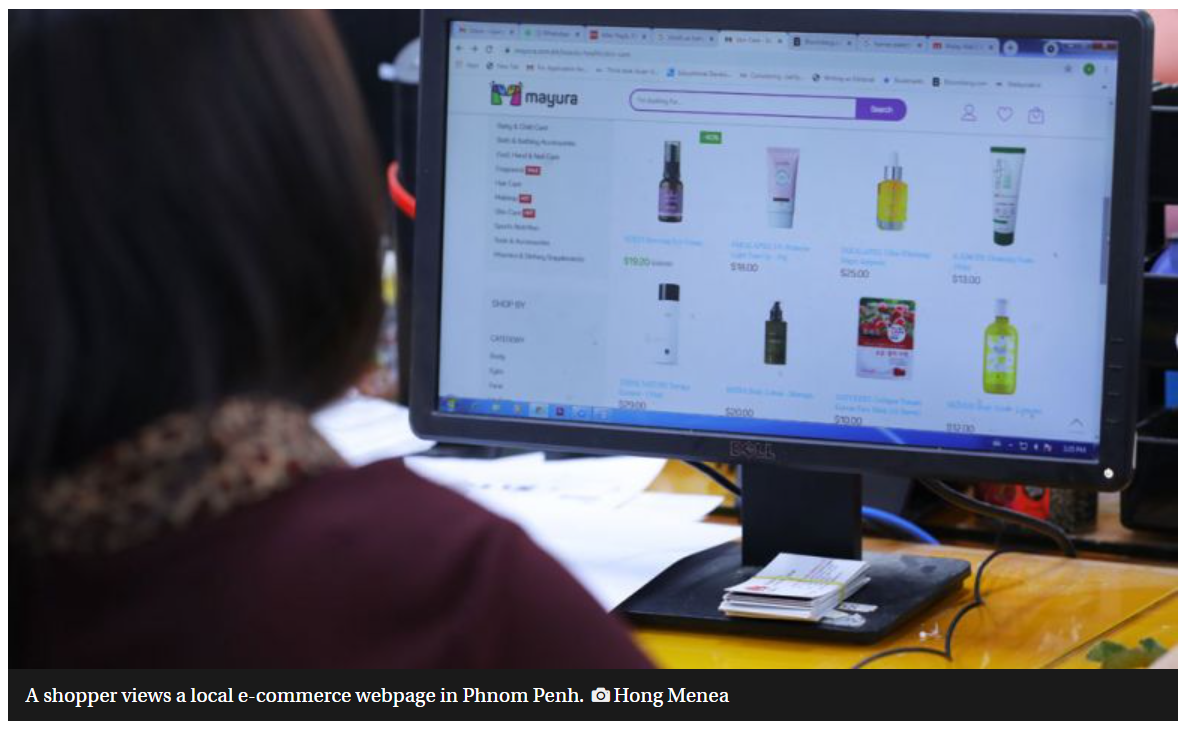Cambodia: Trade body sorts out new EU VAT rules
A local trade body is working to educate its network and find solutions concerning the EU’s recent removal of a value added tax (VAT) exemption for goods imported into the bloc with a value not exceeding €22 ($26), and the optional Import One-Stop Shop (IOSS) scheme created for low-value consignments.
In effect since July 1, the latest EU VAT rule changes come at a difficult time for businesses that are just beginning to resume exports after global downturn as a result of Covid-19, and throws up another hurdle for Cambodian businesses to overcome, after the partial withdrawal of the bloc’s Everything But Arms (EBA) scheme took effect on August 12.
The suspension affects one-fifth or €1 billion of the Kingdom’s annual exports to the 27-nation bloc.
On the other hand, the changes come as part of the EU’s bid to simplify and modernise VAT rules for cross-border e-commerce within the bloc.
The European Commission (EC) said the IOSS “was created to facilitate and simplify the declaration and payment of VAT for distance sales of goods imported to the EU with a value not exceeding €150”.
“If you register for the IOSS, your customers will appreciate that the price they pay represents the final price, VAT included, with no hidden charges or fees.
“If you do not register for the IOSS,VAT will be paid by your customer upon importation of goods in the EU.
“Postal operators or couriers may charge the customer an additional clearance fee to collect this VAT and complete the necessary formalities upon importation of goods,” it said.
European Chamber of Commerce in Cambodia chairman Tassilo Brinzer told The Post that the administrative benefit of the IOSS in the long run outweighs the impact of the loss of the VAT exemption and the flexibility now asked from companies.
“Consumers will know upfront what they have to pay if the seller is registered under IOSS and will no longer be surprised by taxes upon receipt – trust is immensely important in online trade,” he said.
He explained that merchants can file a single VAT return for the whole of the EU and make just one tax payment.
Sellers using online marketplaces should know that the VAT liability now falls on the platform – collecting and reporting VAT is hence no longer the merchant’s direct responsibility, he said.
While the new rules will likely require some adaptation, they are “much more than the loss of the VAT exemption”, and will “generate positive effects”, he added.
“We are actively working with our ICT Committee and our Transport and Logistics Committee to discuss the new rules with our members and how they can comply.
“Many large companies have been anticipating these new rules for months – mixing them with our SMEs [small- and medium-sized enterprises] and individual entrepreneurs in our committees provides a great interaction,” Brinzer said.
He explained that the lifting of the VAT exemption for the import of low value commercial goods into the EU makes doing business-to-consumer (B2C) transactions with Europe more expensive.
However, he added, the new rules only affect the market of merchandise with a value below €22 – goods above this threshold were already subject to VAT.
“As to the IOSS rules, they of course bring about a whole lot of new concerns. For a large part however, it will also mean an administrative simplification for a majority of businesses,” Brinzer said.
Darren Sun, director of eCommerceatShip24.com, an international company that supports electronic retailers (e-tailers) and marketplace merchants, says the IOSS scheme will have a huge impact on Cambodian businesses that use e-commerce to sell to buyers in the EU.
“The issue for Cambodian e-commerce merchants is that they will need to sign up with an IOSS fiscal intermediary, which has to be EU-based, in order to access the benefits the IOSS scheme offers.
“This has left Cambodian e-tailers scrambling to understand how to register for IOSS representatives,” he said.
Accounting for 45 per cent of Cambodian exports, the EU was the Kingdom’s largest trading partner in 2018, according to the EC.
Most of the exports (95.7 per cent) entered the EU market under EBA tariff preferences.
Source: https://www.phnompenhpost.com/business/trade-body-sorts-out-new-eu-vat-rules


 Thailand
Thailand




